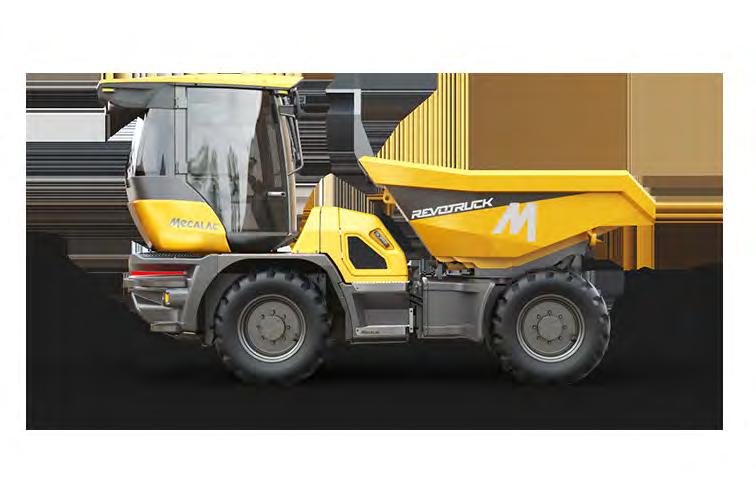
2 minute read
lubricants CHOOSING THE RIGHT LUBRICANT FOR PLANT EQUIPMENT

Modern vehicles and machinery are vital to a plant & civil engineer company’s activities and the maintenance of these vehicles and machinery is vital to ensure the reliability of them so that they perform to their full potential and avoid unnecessary downtime. Choosing the right lubricants is essential to this maintenance for optimal performance and longevity. With so many different lubricant options available on the market, it can be overwhelming to determine which ones are best suited for your equipment. Here are some factors to consider when selecting lubricants for your plant and civil machinery. Equipment type and specifications: The type of machinery you have, and its specific requirements will dictate the type of lubricant you need. Always refer to the manufacturer’s specifications.
Environment
The environment in which your machinery operates can also affect the choice of lubricant. Extreme temperatures, high humidity, and exposure to corrosive chemicals or saltwater can all impact the performance of your lubricant. Performance: Different applications will have different performance requirements for their lubricants. For example, high-speed machinery will require a lubricant that can withstand higher temperatures and pressures than slower-moving equipment.
Compatibility
It is essential to ensure that your lubricant is compatible with the materials used in your machinery. Incompatible lubricants can cause damage to seals, gaskets, and other components. Always check the manufacturer’s recommendations and consult with a lubricant specialist if you are unsure.
Quality
Quality is crucial when it comes to choosing the right lubricant. Poor quality lubricants can cause damage to your machinery and lead to costly repairs or downtime. Choose a reputable brand that has a proven track record of producing high-quality lubricants.
Sustainability
As sustainability becomes increasingly important, more companies are looking for lubricants that are environmentally friendly. Consider using a lubricant that is biodegradable, non-toxic, and contains fewer harmful chemicals. In addition to these considerations, there are several different types of lubricants to choose from:
MINERAL LUBRICANTS: Are suitable for a wide range of applications. They are affordable and provide good protection against wear and tear.
Synthetic Lubricants
Are chemically engineered and designed to provide superior performance and protection and offer extended drain intervals when used. They offer better resistance to high temperatures, pressures, and chemical exposure and are more commonly required for modern equipment.
Biodegradable Lubricants
Biodegradable lubricants are designed designed to break down quickly in the environment to reduce pollution. They are ideal for environmentally sensitive areas. From the factors and types above you can see choosing the right lubricant requires the right thought process and choosing a product based on price or viscosity alone can be a costly mistake. The best advice for anyone to follow is look for the recommended product for your machinery or a lubricant that has full approval to ensure you are using the best quality product. If in doubt talk to a trusted lubricant specialist. One such specialist in Ireland is Finol Oils. Finol has been distributing lubricants in Ireland since 1977 and their technical team can advise customers on any aspect of lubricant requirements. Finol is the authorised distributor of TotalEnergies, Elf, Petro Canada, Actioil and Bluecat. With their own delivery fleet capable of delivering product in all sizes from small pack to pumped bulk nationwide and with over 1 million litres of stock, you can be confident that Finol will have the product you need and be able to ensure timely deliveries for you. Finol has long been a trusted partner for some of the leading OEM distributors in the construction industry such as Renault, Scania, MAN, McSharry Bros & McAdam



For more information on Finol’s range of products or for technical advice









